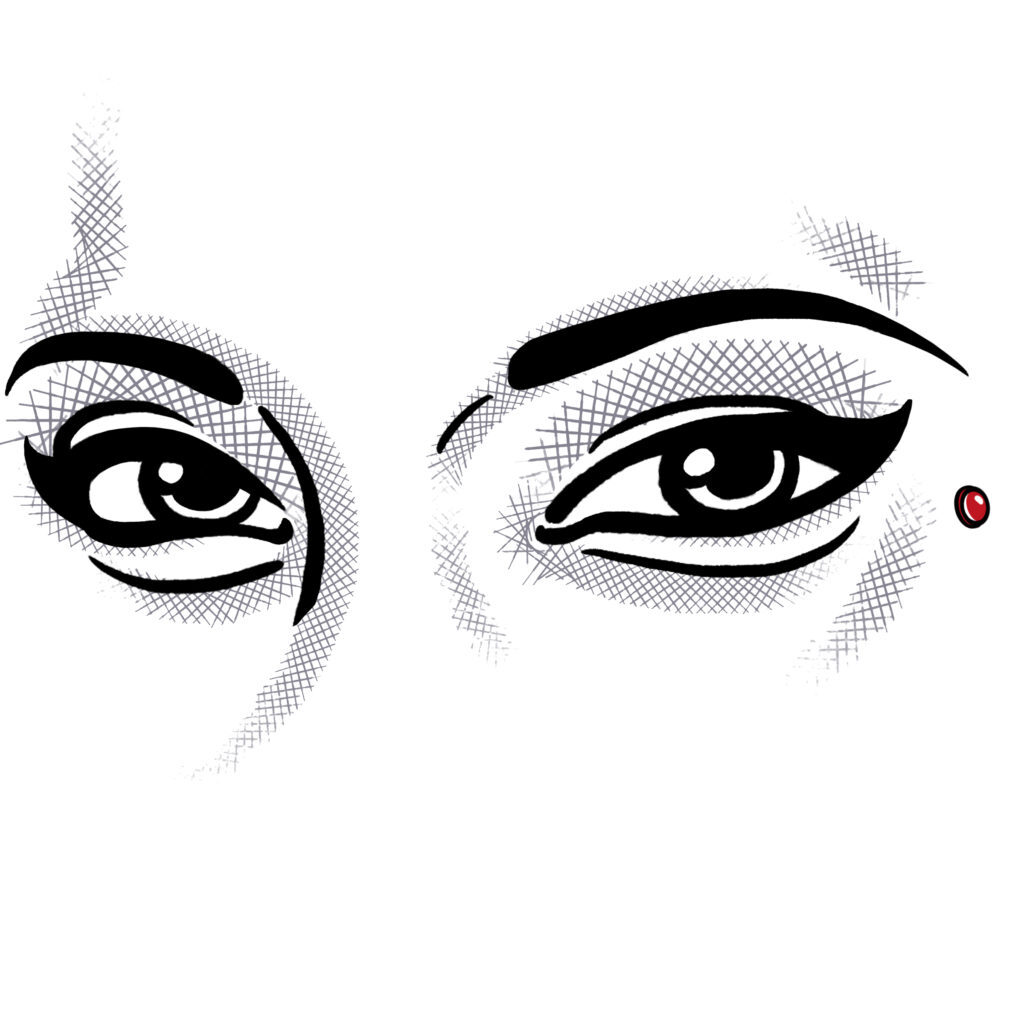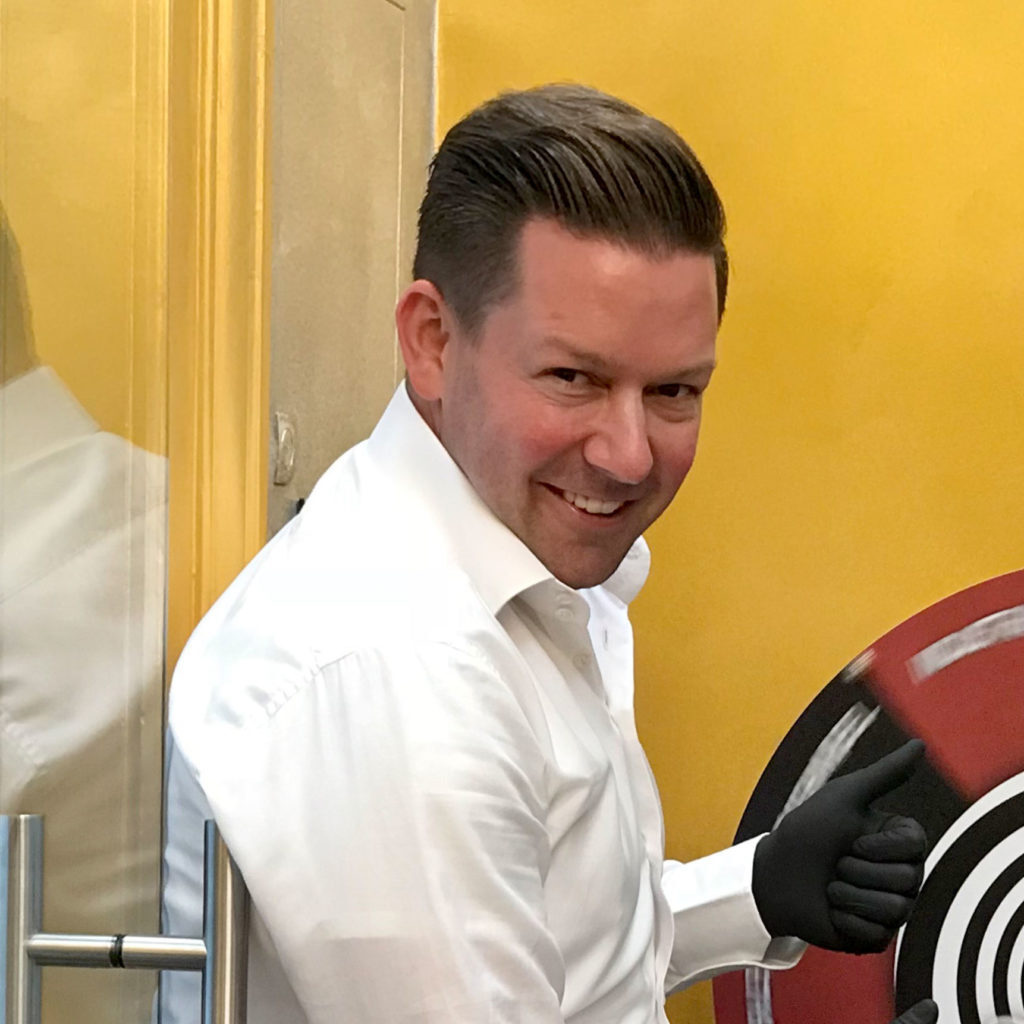Dermal Anchors on the Face

The face and neck are also suitable locations for a dermal anchor. Depending on the wishes of the client, we can even combine more than one dermal anchor.
The face and neck are also suitable locations for a dermal anchor. Depending on the wishes of the client, we can even combine more than one dermal anchor.
A popular facial area for the dermal anchor is around the eyes, either next to them or just below.

In the past we have also placed DA’s above the eye at eyebrow level.
The ear, opposite the tragus, is also a spot that can accommodate an implant.
Another popular spot is the neck or behind the ear, where one will also frequently find tattoos.
Origins:

Dermal anchors are still relatively new. Since their introduction in the middle of 2006, the popularity of microdermals has skyrocketed. Initially, jewelry similar to nose studs were used. A loop under the skin was intended to help it grow in and stay in place. However, experience showed that specially designed implants provided better results.
Currently, there are a number of different implants that we can use, allowing us to place it on almost any part of the body. Depending on the area of the skin, and the depth of the piercing, we select the most suitable implant.
Placement and Motifs:

A dermal anchor can be placed on almost any part of the body. Because there is a large selection of lower plates, an experienced professional can choose the one best suited to the area.
Frequently, dermal anchors are placed around the eyes, on the nape of the neck, in the suprasternal notch, as well as in the décolleté area or the navel. You will also find dermals on the hand, the arms, or on the legs.
There are many motifs available for back piercings, e.g. stars or crosses.

Dermal anchors are also worn by women in the genital area or on the pubic bone.
Tattoos always offer a good opportunity to use a dermal anchor as an added adornment.
Healing and Care:
Note:
The single-point-piercing should be touched as little as possible (wash and disinfect your hands if doing so), and exposed to as little irritation as possible as well. Do not remove or twist the piercing when cleaning, since this can further damage the wound canal. Use ProntoLind-Spray and ProntoLind-Gel twice a day for the first 2-3 weeks, then once a day for another 3 weeks.

Healing Process For All Single-Point-Piercings:
- Depending on the area, the initial healing of a surface piercing can take anywhere between 3 – 12 weeks, and up to 12 months for a complete recovery. A swelling of the lymph nodes in the first few weeks is completely normal.
- At the beginning, make sure you have a professional piercer switch your jewelry to another size of ball, bar, or ring.
- Never tape the piercing wound shut. Also avoid “wound” ointments, alcohol or chlorine-based disinfectants, hydrogen peroxide, and essential oils.
- Saunas, sunbeds, steam baths, and any kind of swimming in pools should be avoided for two weeks. Exposure to sea water is allowed after 7 days.
- Do not color or dye your hair for the first 6 weeks; use caution when combing your hair or visiting the hairdresser/barber.
- It is normal for there to be a wound secretion around the pierced area (initially clear, then yellowish-brown, not to be confused with pus) and for it to become sebaceous. This is part of the healing process, and can be removed with ProntoLind Spray, or when showering.
- A slight reddening and swelling of the skin and light post-treatment bleeding are normal in the first 10 days.
- When engaging in everyday tasks such as dressing, undressing, eating, shaving, applying cream, showering, washing, opening and closing cupboards, be careful that the piercing does not get caught in something and tear.
- Avoid lying down for too long or exerting undue pressure on the pierced area, as this can cause damage.
- If you see the piercing growing in a “crooked” direction, you can lightly twist it in the opposite direction and hold it there a few seconds in order to set it straight again.
Jewelry:

The implant is inserted into the skin tissue and will remain there. The implant itself cannot be changed because it is inside the skin, and is about 1.5mm large. However, you can replace the upper attachments of the implant with pieces of different sizes: 2.5mm, 3mm, 5mm, and even 6mm. There are rounded discs with rhinestones in all color and other motifs such as stars.
The upper attachments are also available in gold. Indeed new designs are coming out almost weekly.
The dermal anchor is more popular than ever, and is no longer considered something “dangerous”.
The face and neck are also suitable locations for a dermal anchor. Depending on the wishes of the client, we can even combine more than one dermal anchor.
Marc
and Piercer
Online reservation for the piercing of your choice
More than 40.000 hiqh-quality piercings and tools.



